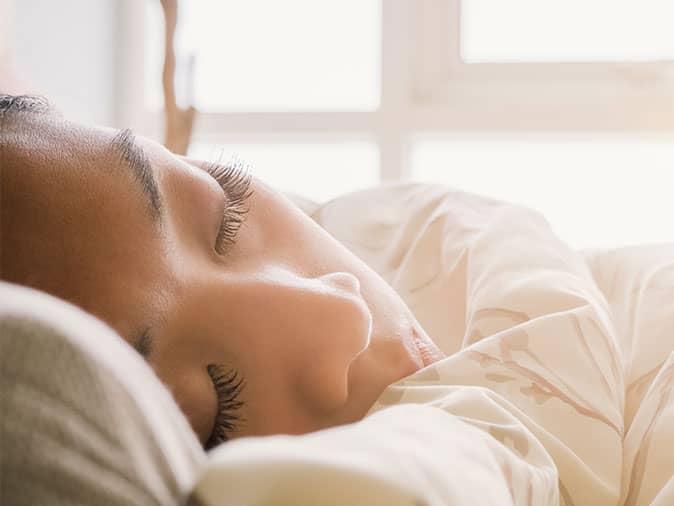Traditional sleep apnea testing is done in a lab over one night. It’s called in-lab polysomnography. You go to a sleep testing lab for one night, and sensors and a tech monitor your sleep for the night. The data is then given to a sleep doctor who would diagnose you or not. However, the problem is that sleep apnea episodes fluctuate nightly, making the severity of your sleep apnea hard to diagnose in just one night of monitoring. Not only that, but sleep testing labs can be uncomfortable, like sleeping in a hotel. You may or may not sleep as you normally would at home.

Is One or Two Day Testing Better?
Most labs still conduct one-day testing, but evidence suggests that one-day testing can’t accurately determine the severity of your sleep apnea. That could be a real problem if you were diagnosed too lightly! One night testing could miss mild to moderate obstructive sleep apnea up to 60% and 84% of the time, as found by researchers in two studies. A third study found that the severity of obstructive sleep apnea was misdiagnosed in one-night testing.
Each potential sleep apnea patient is measured on a scale called the average apnea-hypopnea index (AHI). Patients are given a number based on the number of apnea events (stoppage in breathing) plus the number of hypopneas (shallow breathing) that occur on average each hour. Each episode or event must last at least 10 seconds to qualify.
Less than 5 = no sleep apnea
5 – 15 = mild sleep apnea
15 – 30 = moderate sleep apnea
Over 30 = severe sleep apnea
47,423 adults were assessed in a published study in the Journal of Clinical Sleep Medicine. On average, AHI was 26.9, with an average variance per night of 5.5. More than one-third of the people in the study had a significant variance that would put them into a new severity category.
Adding another night of testing will reduce the amount of inaccurate sleep apnea diagnoses.
How to Test for Sleep Apnea: In-lab or at-home?
For people who want a more accurate sleep apnea diagnosis, at-home sleep testing provides two-day testing, while most labs still stick to single-day.
Benefits of At-Home Sleep Apnea Testing
- Two-night minimum: You’ll wear your sleep testing device for two nights. The gathered data will allow your doctor to diagnose you more accurately. With two-night testing, you won’t have to worry about being underdiagnosed.
- Stay at home: The at-home sleep test is sent to your door. You don’t need to sleep in a lab, possibly disrupting your normal sleep.
Affordable: At-home sleep testing is more affordable than lab testing because it doesn’t require a facility or techs to monitor your sleep. - Convenient: You don’t have to disrupt your life to perform a sleep test. One of the significant barriers to sleep apnea testing is the hassle of going to the lab when you lead a busy life. With at-home testing, you won’t have to change your schedule.
- Telemedicine: At-home sleep testing allows you to be diagnosed or cleared from sleep apnea without ever having to go to the doctor. You’ll meet virtually at a time that’s convenient for you.
Does Anyone Ever Pass A Sleep Apnea Test?
This is a common question on many minds and another barrier to sleep apnea testing. Many feel that the “pass” criteria are too difficult to achieve. Most people who get a sleep apnea test are indeed diagnosed with a form of sleep apnea, but that’s because they noticed a sleeping problem that prompted them to get tested. Very few people who don’t present sleep apnea symptoms choose to get a sleep apnea test.
So, does anyone ever pass a sleep apnea test? Yes, but people who sleep well don’t usually opt for testing.
Choose At-Home Sleep Apnea Testing
SleepTest.com provides affordable at-home sleep apnea testing. The test is two nights long, so it gathers all the data necessary to make an accurate diagnosis. Getting a sleep test from SleepTest.com is easy; simply order your sleep test, take the two-night test, and get an accurate diagnosis within days. Order your sleep test today.

Feeling tired all the time, even after a full night’s sleep? You might be suffering from sleep apnea. Discover how an at-home sleep test can help diagnose the root cause of your fatigue—and get you back to feeling like yourself.

Spring is here—and so is the pollen. For the millions dealing with seasonal allergies, the symptoms can be more than just annoying. And if you also have sleep apnea, those stuffy nights and restless sleep can get even worse.
Let’s take a closer look at how spring allergies and sleep apnea affect each other—and what steps you can take to sleep more comfortably.




